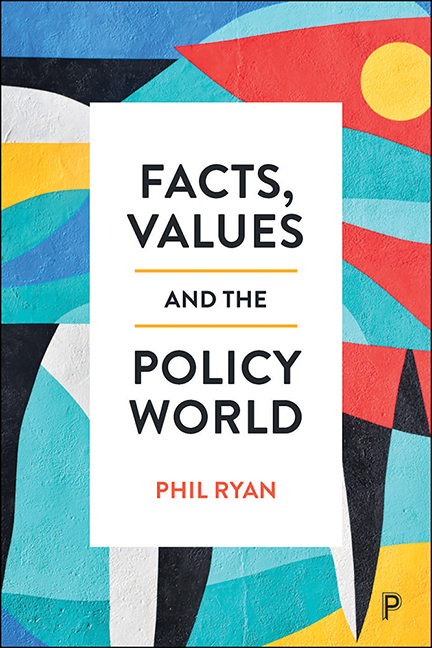Introduction
Published online by Cambridge University Press: 15 September 2022
Summary
The training of social scientists, including future policy analysts, is always a training in technique and culture. Training into a culture involves the transmission – intentional or unintentional, explicit or tacit – of ways of seeing the world and ways of behaving. For social scientists trained in a certain way, a key element of this cultural acquisition is to recognize a nogo zone: ‘theories are positive – about how the world really is – and not normative – about how we want the world to be’ (Remler and Van Ryzin, 2015); ‘Research questions should not ask about what ought to be, but rather seek to understand what is’ (Barakso et al, 2014). One methods textbook advises: ‘In scientific writing, avoid words or phrases such as “should,” “must,” “ought to,” “good,” and “bad,” which imply moral imperatives and value judgments.’ If one fails to heed this advice, one will fall into ‘a messianic approach that is more appropriate for an evangelist than a scholar’ (Gebremedhin and Tweeten, 1994, 19).
But cultures, of course, are never fully consistent. Consider the advice just cited: we are being told that we should or must avoid words such as ‘should’ or ‘must’. So there is an explicit message, but also an unspoken one: we must learn to disguise our ‘moral imperatives and value judgments’, as the authors themselves have done.
But just what's wrong with using ‘should’? The counsel points to a broad and deeply rooted outlook, which I will call the binary view. This view holds that:
a) There is a gulf between two entirely different types of phenomena. On the one hand, we have: facts, positive or empirical statements, and so on. In an entirely different realm are values or norms, value judgments or normative statements, and so on. These different types of phenomena are ‘absolutely heterogeneous in character’, as Max Weber put it (1949, 12).
b) The validity of fact claims can, in principle, be objectively tested. This is not always easy, but is generally possible. Value claims, on the other hand, can be neither verified nor falsified. Being untestable, they are inherently subjective, enjoying ‘no objective validity whatsoever’ (Ayer, 1946, 108). We may thus liken them to mere tastes or preferences.
- Type
- Chapter
- Information
- Facts, Values and the Policy World , pp. 1 - 10Publisher: Bristol University PressPrint publication year: 2022



